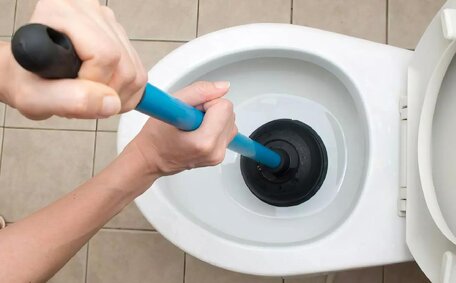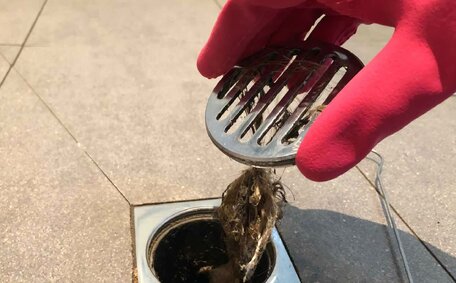
How to Prevent Household Blocked Drains
Blocked drains can be prevented by using drain strainers, avoiding pouring oils down drains, clearing hair from drains, and more tips from Seven Hills Plumbing.
Read MorePlumbing emergencies require immediate attention to prevent extensive property damage or disruption to your home or business. Recognising the signs of a serious plumbing issue quickly is key to minimising the impact.
Some examples of plumbing emergencies include:
Preparing an emergency plumbing kit can help you take fast action when issues arise. Useful items include a pipe wrench, torch, buckets, and absorbent towels. Also know how to shut off water to your home at the main valve.
At the first sign of a plumbing emergency, take actions like shutting off water to contain damage. Then call a professional emergency plumber who can properly diagnose issues and make repairs when you need urgent help.
Plumbing emergencies can arise at any time and involve several common issues. Being aware of the most frequent emergencies allows you to respond quickly when they occur.
Some of the most common plumbing emergencies include:
Being prepared with an emergency plumbing kit and knowing how to shut off water can help minimise damage. Always call a professional plumber immediately if a major plumbing emergency arises in your home or business.
Having the right tools and safety equipment on hand will help manage a plumbing emergency until a professional plumber arrives.
A well-stocked plumbing emergency kit should contain:
Also useful are a multi-bit screwdriver, hammer, hacksaw, adjustable spanner, mole grips, silicone sealant, and epoxy putty.
Ensure you know the location of your main water shut off valve. This allows you to turn off the main water supply to contain leaks and flooding.
Having an emergency plumbing kit prepared along with access to the main valve can save extensive water damage and make the situation safer. But always call a professional plumber as soon as possible for urgent repairs.
When a major plumbing emergency hits, like a burst pipe or gas leak, quick action is essential to prevent property damage and ensure everyone’s safety. Here are the steps to take straight away:
Shutting off the main water supply is the first step to take when a leak or burst pipe occurs. This helps prevent floods, reduces damage and makes the situation safer. But always call a qualified plumber immediately to correctly identify and resolve any plumbing emergency.
Being proactive with plumbing maintenance and repairs is the best way to prevent emergencies. Simple, regular tasks can stop many issues arising.
Have all drains professionally cleaned every year to clear built-up debris. Clogged drains are a major cause of sewer flooding.
Inspect pipes, joints, valves and seals regularly. Repair any small leaks promptly before they worsen.
Update any old or damaged pipes and fittings that are prone to bursting.
Replace water heaters older than 8-10 years to avoid failures.
Clean faucet aerators and showerheads every few months to maintain flow.
Test sinks, tubs and outdoor pipes for leaks before winter. Insulate pipes in cold areas.
Trim trees and roots encroaching on exterior plumbing lines.
Ensure overflow holes inside toilets and sinks aren’t clogged.
Maintain proper drainage slopes on wastewater pipes.
Regular maintenance like drain cleaning and leak repairs can prevent many plumbing emergencies. Being vigilant stops small issues becoming major ones. Contact a plumber if you notice any problems.
Blocked drains can be prevented by using drain strainers, avoiding pouring oils down drains, clearing hair from drains, and more tips from Seven Hills Plumbing.
Read MoreNoticing signs of a household blocked drain like slow drainage, gurgling sounds, foul odours or overflowing water indicates you need an emergency plumber. Call Seven Hills Plumbing to dispatch a plumber to clear your blocked pipes before further damage.
Read MoreRestaurants and cafes frequently deal with blocked kitchen drains due to grease, fat and food buildup. Prevent clogged pipes through scraping plates, using drain strainers and avoiding pouring fats/oils down sinks. Or call a professional plumber to hydro jet pipes and permanently clear blockages.
Read MoreSeven Hills, 2147 NSW
We will call back as soon as possible.




